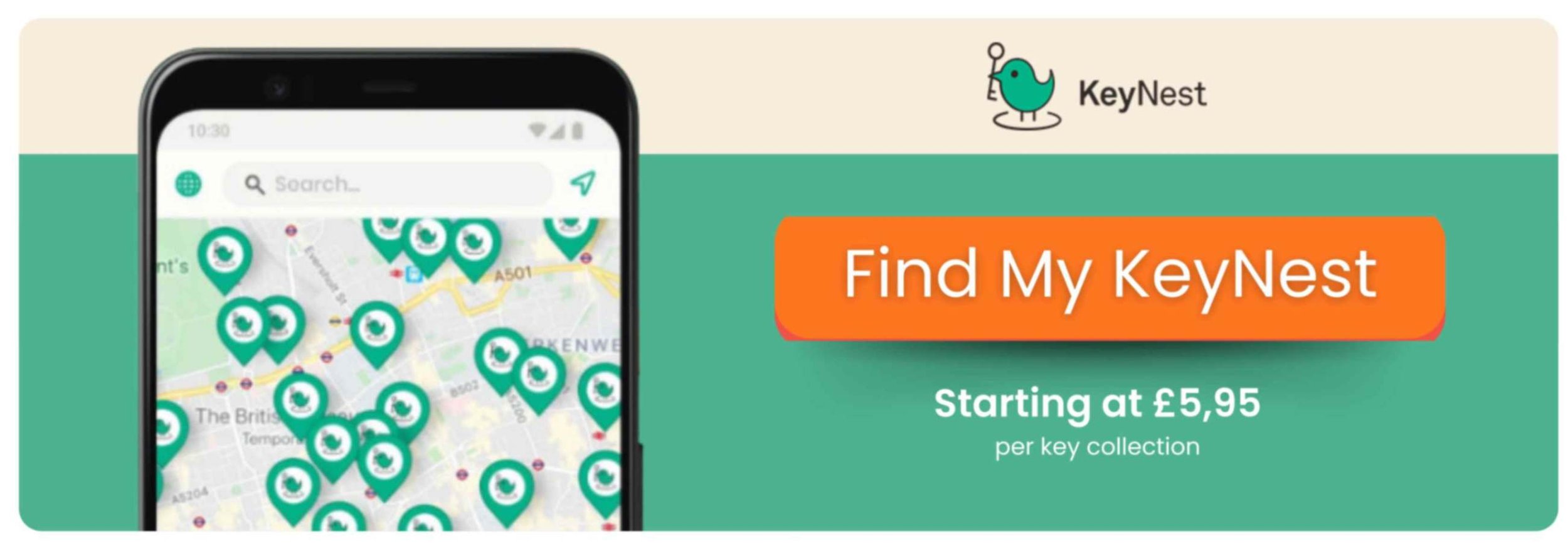Over 1500 key exchange locations nationwide
Potential Guest Red Flags - Tips For Vacation Rental Hosts
Navigating the world of short-term rentals as a new Airbnb host can be both exciting and overwhelming. While hosting offers a unique opportunity to meet new people and earn extra income, it also comes with challenges, including potential guest issues. One of the most critical aspects of hosting is recognizing potential problems before they arise. Properly screening guests not only helps protect your listing but also ensures a smooth and positive experience for everyone involved.
Although most vacation rental guests are respectful and responsible, there are occasional exceptions that require caution. Identifying another red flags to look for on guests early on can help you avoid costly damages, awkward disputes and negative reviews. From unusual requests to poor communication habits, knowing what to look for is essential for maintaining a successful rental. In this guide, we’ll explore common warning signs and share practical strategies to safeguard your hosting reputation and to address issues underlying a booking. Staying vigilant doesn’t mean not to accept every guest in a reservation, it’s about making informed decisions and setting boundaries to develop a professional atmosphere. Clear communication, house rules and guest vetting are crucial components and options of a proactive hosting strategy.
By adopting these measures, you can create a safer, more enjoyable environment for both you and your guests to agree on. Our goal is to help you navigate issues confidently and keep your Airbnb business running smoothly. Dive in to learn essential tips and strategies that will set you up for success as a host. With the right approach, hosting can remain a rewarding and stress-free experience.
1. Unclear Or Incomplete Guest Profiles As Guest Red Flags
Guests with incomplete or poorly maintained profiles can raise concerns for hosts. These profiles often lack essential information such as a profile picture, bio, or verified identity.
Profiles without reviews or history may indicate new guests, which requires additional vetting.
Incomplete personal information can suggest a lack of transparency or accountability.
Verify identification through Airbnb's verification system whenever possible.
Don't hesitate to ask follow-up questions to learn more about the guest's background.
Politely request missing information to ensure trust and security.
Being thorough when reviewing guest profiles can help avoid misunderstandings.
2. Last-Minute Or Unusual Airbnb Booking Requests
Spontaneous bookings are common, but unusual last-minute demands may signal potential issues. Be wary if a guest pressures you to bypass normal check-in procedures or demands special accommodations without proper explanations.
Such demands could indicate attempts to skirt Airbnb rules or conceal problematic intentions. Always review the guest’s profile and reservation details carefully. Trust your instincts and prioritize bookings that align with your standard policies.
Demands for very short notice check-ins may signal hasty or poorly planned stays.
Inquiries asking for additional guests beyond the booking count could indicate rule-breaking intentions.
Pay attention to messages that feel rushed or lack important details.
Be wary of bookings during major events where accommodations are in high demand.
Politely ask clarifying questions about the guest's plans and expectations.
Remaining cautious with these types of bookings ensures your listing is respected and secure.
3. Poor Or Suspicious Communication
Effective communication is key to a positive guest-host experience. Be cautious if a guest avoids answering questions, provides vague responses, or demands communication outside Airbnb's platform. Such behavior may indicate an attempt to bypass policies or conceal important details.
Clear and transparent communication sets the tone for a successful stay and minimizes misunderstandings. Pay attention to these signs to ensure a secure and professional booking process.
Be wary of guests who avoid answering direct questions about their stay.
Demands to communicate outside Airbnb’s messaging platform are a red flag.
Guests who provide vague or incomplete responses can be difficult to manage.
Aggressive or entitled behavior in messages is often a sign of future problems.
Trust your instincts if the tone of communication makes you uneasy.
Staying within Airbnb's communication platform protects both you and the guest in case of disputes.
4. Guests With History Of Negative Reviews
Airbnb reviews offer crucial insights into a guest's behavior and reliability. Pay close attention to feedback from previous hosts, especially mentions of lodging damage, rule violations, or communication issues. Consistent negative reviews can be a red flag and warrant extra caution.
If you're uncertain, consider reaching out to the guest for clarification about previous incidents. Remember, you have the right to decline reservations that may compromise your hosting experience.
Look out for multiple negative reviews that mention lodging damage, disrespectful behavior, or rule violations.
Guests with inconsistent review patterns may require additional questions for clarification.
Avoid stereotyping but prioritize reviewing past feedback carefully.
Remember that a lack of reviews doesn't necessarily mean a negative experience, but it warrants caution.
Communicate clear expectations upfront to avoid potential conflicts.
Understanding past guest behavior helps you make informed decisions.
5. Overly Demanding Or Unreasonable Expectations
Some guests may make requests that are beyond what is reasonable or practical for a host to fulfill. Watch for individuals who repeatedly demand customized amenities, excessive discounts, or extensive rule exceptions. Unreasonable expectations can lead to dissatisfaction and negative reviews if unmet.
Setting clear boundaries upfront helps manage guest expectations and avoid misunderstandings. Don’t hesitate to politely decline requests that go against your hosting policies or compromise your lodging management standards.
Requests for significant discounts or freebies can signal trouble.
Demands for additional amenities not listed in your rental description are problematic.
Guests who criticize your rental before reserving may be setting the stage for a negative stay.
Ensure that your rental accurately reflects what you offer to set proper expectations.
Be polite but firm when communicating boundaries about what you can and cannot provide.
Setting clear expectations early prevents misunderstandings and stress later.
6. Unwillingness To Follow Vacation Rental Rules
Guests who disregard house rules often create the most challenges during their stay. Be cautious of individuals who dismiss or question your guidelines during the confirmation process. A reluctance to follow rules can result in noise complaints, rental damage, or disputes with neighbors.
Clear communication of house rules upfront sets expectations and minimizes potential issues. Politely but firmly reinforce your policies when needed and remain prepared to address any violations professionally.
Pay attention to questions about bypassing rules, such as allowing pets when they are not permitted.
Disrespectful comments about the rules can indicate potential challenges.
Guests who refuse to acknowledge house rules may be more likely to cause disturbances.
Use Airbnb's messaging platform to document all rule-related discussions.
Keep a professional but firm tone when discussing the importance of following your rules.
Protecting your property begins with enforcing house rules from the start.
Prioritize Safety & Communication For A Positive Hosting Experience
Recognizing guest red flags is an essential skill for Airbnb hosts, especially those new to the platform. By staying vigilant and proactive, you can minimize potential issues and enjoy a seamless property managing experience. Implementing thorough guest vetting processes, maintaining open communication, and setting clear expectations will help safeguard your property and reputation. While not all red flags signify problematic guests, they are important indicators that warrant careful assessment.
Airbnb offers support and protection for property managers, but taking preventive measures remains your best defense. Learning from past experiences and continuously refining your guest screening process will set the foundation for long-term success. Trusting your instincts when evaluating requests is also crucial. Don't be afraid to make decisions that prioritize the safety and comfort of your home. When property managers combine caution with a warm, welcoming attitude, they create a balanced and secure environment for all guests.
By adopting these proactive strategies, you can foster a successful and rewarding property management journey. Your diligence not only protects your investment but also contributes to positive guest experiences and glowing reviews.
About Us
KeyNest offers you a convenient service for storing and exchanging your property keys. You can drop off a key at any of the 7,000+ locations in our network, so there’s one such Point located next to your property.
Guests, cleaners or contractors can then collect the key securely from a KeyNest Point or KeyNest Locker which is usually open 24/7. You'll be notified each time the key is picked up or returned, and you can even customize check-in and check-out times. By leveraging technology and a global network of locations, KeyNest continues to redefine property management, offering solutions tailored to meet the evolving needs of the rental market..
KeyNest has an ever-expanding global network of locations located just minutes from your property. To find out more you can contact us.
Neil Beltran 5 February 2025



